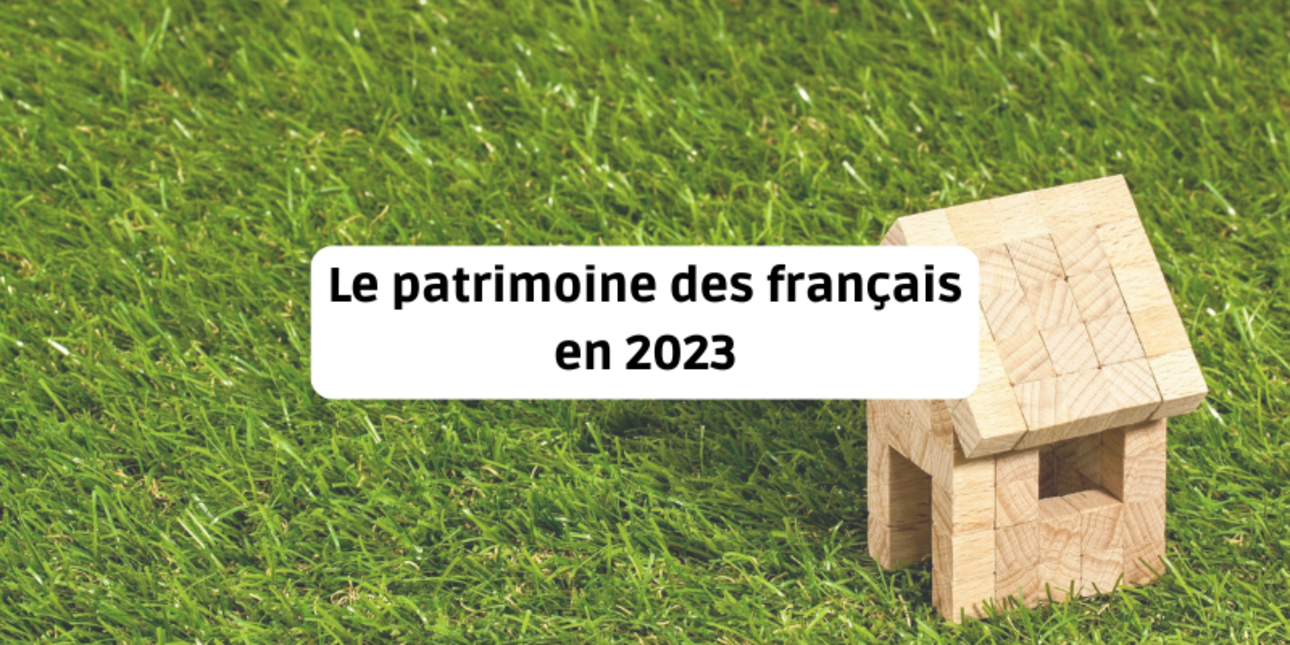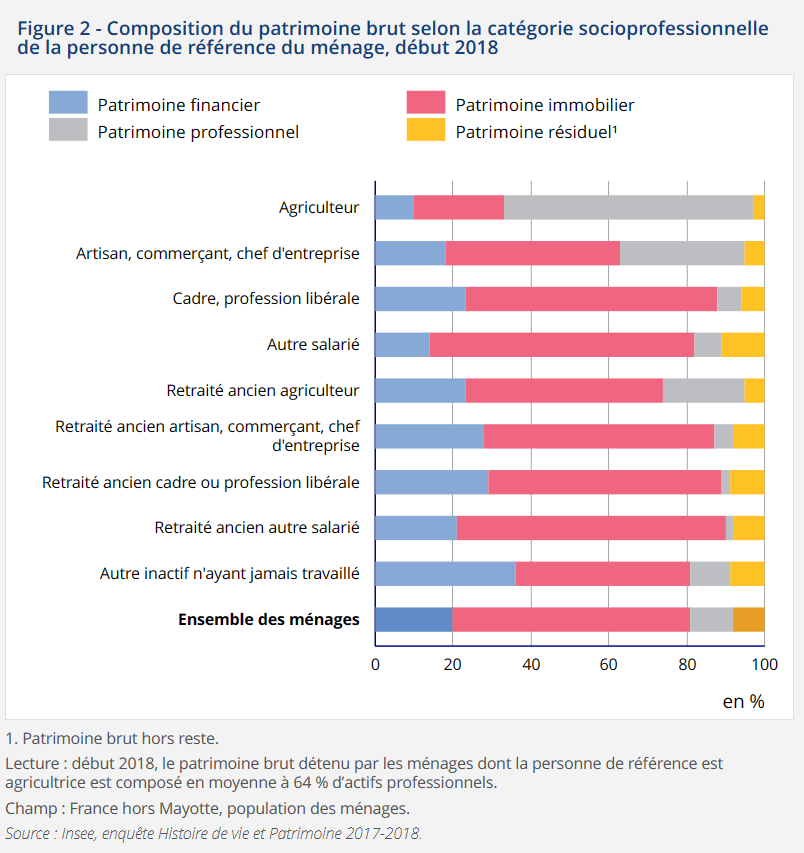
Property plays a very important role in French people's wealth. The Banque de France has just published a new study on the wealth situation of the French in the 2nd quarter of 2023, which we have decoded for you.
The Banque de France now publishes a quarterly presentation and analysis of the wealth of French households. The January/February 2024 newsletter presents the situation of these assets in the 2nd quarter of 2023.
These statistics comply with a European standard that will enable real comparisons to be made with the other countries in the Eurozone.
The total net wealth of French households stands at €14,041 billion. Net of inflation (i.e. in constant euros), it has risen by 23% since the end of 2009.
The average wealth of French households is 446,000 euros, an increase of 13% since 2009 in constant euros.
Median wealth (which separates the wealth of the poorest 50% of households from that of the richest 50%) is only €185,000, but is still up by 5%.
The growth in this wealth since 2009 can be explained mainly by the increase in the value of property, which has benefited 60% of the richest households. But also by the increase in the value of business assets, which benefited 20% of the wealthiest households.
It is interesting to compare household wealth by deciles, i.e. by series of 10%: from the poorest 10% to the richest 10%.
10% of households share 54.2% of wealth, compared with 52.7% in 2009. The wealth of the richest French households has therefore increased slightly more than the average.
The wealth of the poorest 50% of households represents 5% of the wealth of all households. This also means that 50% of (the richest) households own 95% of total wealth.
The indices used to calculate the wealth gap between French people show a very slight increase (+0.70%) since 2009.
On average, net property assets represent 55% of a household's total assets.
This means that 60% of households own 99% of real estate assets net of borrowings. This does not mean that 40% of households do not own any property, but it does mean that the proportion of property loans significantly reduces the net amount of assets.
Another important point is that the increase in the value of property assets net of borrowings does not generate any additional income for the vast majority of households, as it mainly consists of unrealised capital gains. This capital gain is only realised if the property is resold, and can fall if property prices fall.
The wealthiest 10% saw their professional assets rise from 21% to 24% of their total net assets between 2009 and 2023. They also own 87% of non-financial business assets and 87% of financial business assets.
For the least wealthy 50%, their business assets rose from 4% to 5% over the same period.
Unsurprisingly, owning business assets allows one category of household to grow richer.
These figures can also be compared with the INSEE study on gross household wealth at the beginning of 2018. Farmers, craftsmen, shopkeepers, company directors and the self-employed are the socio-professional categories with the highest average wealth. 
Another INSEE study "At the beginning of 2021, 92% of wealth assets will be held by half of all households", which shows the wealth held by the richest 1% of French households. They hold :
According to the study, wealth inequality is slightly lower in France than in the eurozone as a whole.
The wealthiest 10% of households share 56% of total wealth, compared with 54% in France. On the other hand, 50% of the least wealthy Europeans own, as in France, 5% of total wealth.
Rural property often supports a professional activity (agricultural, vineyard, …).
The business assets of this socio-professional category are often substantial. The adage that "farmers live poor and die rich" is unfortunately all too often true.
Investing in a tourism sector (gîtes, guest house, …)
also requires a strong investment in assets, which will be reflected in the future composition of the estate.
Rural property is also a key investment vehicle for the most affluent households (in the forests, the agricultural land or prestige properties for example).
But rural property can also simply be a place to live, where you can enjoy wide open spaces, peace and quiet and a special connection with nature.